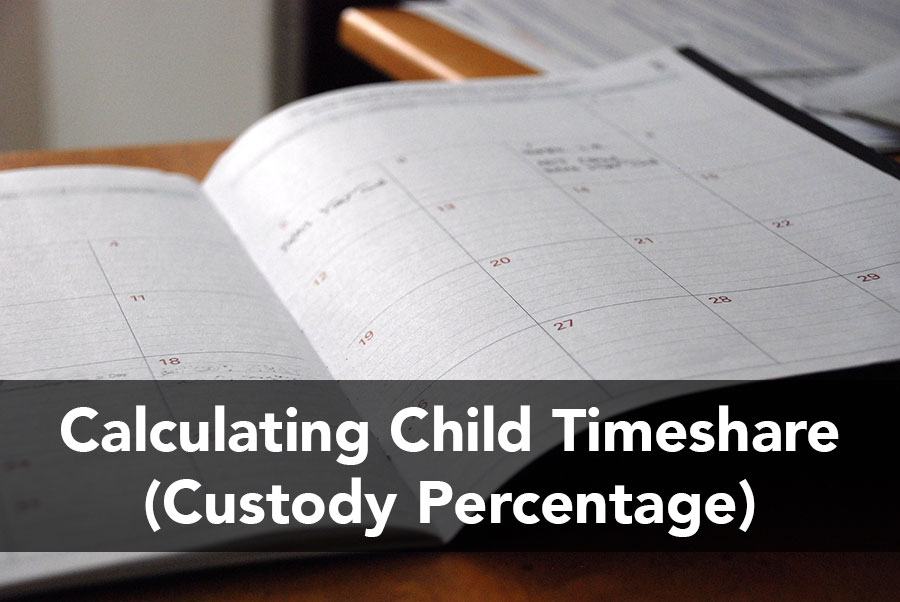Child Support Basics: What you Need to Know
California’s public policy is that a parent’s first and foremost responsibility is to support their child. It does not matter if you are a mother or a father, if you are the middle of a divorce or have never been married to the other parent, or if you have traditionally stayed at home caring for your child or historically been the primary financial support in your former relationship – the obligation is mutual and important. Family Code Section 4053 essentially states that it is in children’s best interests for parents to accept responsibility for financially caring for them. All California family law cases that involve children of the relationship at hand must address the issue of child support.
How is Child Support Calculated in California?
Child support in California is calculated using a complex algebraic formula under specific and uniform guidelines. Generally speaking, we look at two factors when determining child support: parents’ incomes and timeshare. The purpose of having uniform state guidelines is to allow for uniformity in calculating child support. There are a number of approved software programs like DissoMaster, X-Spouse, and SupporTax that were designed to assist with computing child support.
To determine income available for support, we look at more than just a person’s salary – we also have to look at that person’s tax deductions as well. Therefore, in order to accurately calculate someone’s income, it’s important to look at more than just gross income. You will also want to know about any available income tax deductions, such as health insurance premiums, mortgage interest, and property taxes. You should pay attention to tax-deferred income, such as voluntary retirement contributions, as deferring taxes on income will result in a higher amount of net income.
As for timeshare, we look at how much time a child is in a parent’s care and custody. This can be a very detailed calculation, as we use hours, not just days. School hours are treated the same as sleeping hours – in other words, each hour is equally weighted. For example, it’s not enough to state that the parenting schedule is that a parent has “every other weekend.” An “every other weekend” schedule could be Friday after school until Monday morning, Saturday morning until Sunday evening, and everything in between. Friday after school until Monday morning is roughly 60 hours, as opposed to approximately 36 hours on a Saturday morning through Sunday evening schedule. That difference makes a significant impact on timeshare, which in turn impacts the amount of child support.
Downfalls to Guideline Child Support in California
Although California child support laws generally work well and are designed to help parents resolve conflict around this issue, the law doesn’t always work perfectly. Sometimes children can become pawns in an effort to either increase or decrease child support. Some parents will deliberately oppose the other parent’s desire to spend more time with the children, as that would typically mean a reduction in the objecting parent’s child support. Other parents will insist on spending as much time as possible with the children simply as a way to reduce their child support obligation.
Another potential downfall with California’s child support structure is equal requirement placed on parents to financially support their children to the best of their abilities. For some families where a parent has always stayed home to care for the children, there is a significant adjustment for the children and the stay at home parent. The children will have to adjust to being in childcare and not having a parent always at their disposal. In some cases, both parents end up with less money, if the former stay at home parent lacks the skills to earn enough income to cover the childcare costs.
A third downfall with California child support is it can be very difficult to actually determine what a parent’s income is. If a parent is self-employed or earns cash “under the table,” it can be very expensive and tricky to define that person’s income. Sometimes it’s virtually impossible to do so when a parent is determined to lie about and/or hide income.
Deviating from Guideline Child Support
The good news is that California always allows parents to have the first opportunity to reach agreements regarding child support. While the guidelines will always be available for parents who are unable or unwilling to agree to anything else, and often times these guidelines serve the children well, every situation is different. That means that sometimes guideline support just isn’t the best answer for a family. While the law allows a judge to deviate from the guideline amount, it’s a very high burden for a parent to prove in order to justify an amount of support other than guideline. The one exception is that anytime parents agree to a child support amount that deviates from the presumptively correct amount and do so freely and knowingly, judges will honor their agreement.
Add-On Child Support
Family Code Section 4062 provides for additional contributions to specified child-related expenses, which are commonly referred to as “add-ons.” Mandatory add-ons include childcare costs related to employment or to reasonably necessary education/training for employment, as well as uninsured healthcare costs. Discretionary add-ons include travel expenses for visitation, educational, and extracurricular activity costs.
Most of the time, these expenses are equally shared by the parents. There are times, however, when the judge may decide that allocating these expenses proportionally to their net incomes makes more sense.
Conclusion
We obviously cannot cover every child support topic on this page, and to be honest, no article is going to truly be able to be a perfect substitute for one on one advice from a family law attorney. But we hope you now have more direction and answers to some of your questions regarding this issue. For more information, please feel free to contact us.





